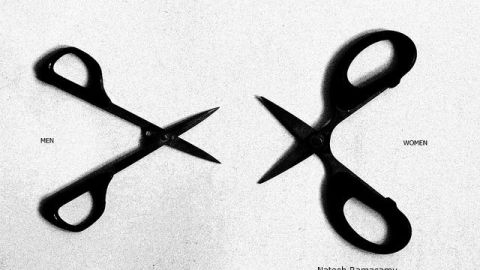The Incivility Gender Gap

Weber Shandwick and Powell Tate, with KRC research, is releasing an interesting report this week on “Civility in America 2012.”
Sixty-three percent “believe we have a major civility problem in America,” and 81% believe “incivility in our government is harming America’s future.”
Of course, if over 6 out of 10 Americans believe that incivility is a “major problem,” then some of those 63% are probably themselves engaging in what others perceive to be incivility.
In some cases incivility has compelled people to make changes in their lives. Almost 4 in 10 have “defriended” or blocked someone online due to uncivil behavior; 18% have “personally experienced cyberbullying” or online harassment.
Americans called out “incivility on the road”—something that 60% say they’ve experienced—and incivility “while shopping” (49%), at work (34%), and in the neighborhood (28%).
I’ve been mulling incivility and the decline of manners for some time, especially in online spaces.
Incivility seems to me like collateral damage of our deeply niched lives, which make other Americans more unknown and unknowable to us. Sometimes it can feel as if we’re an ensemble of sub-cultures today, and no culture—no shared epistemology or point of view.
There are fewer spaces of social crossing and interaction that “humanize” the other and make them less available targets for our incivility. During the recall, Wisconsin residents reported that tensions were so high and implacable that the only safe topics of social kinship were the Packers and the weather.
Incivility thrives when social life is niched and anonymous. Online comments sections are the most depressing and extreme example of America’s collective hair-trigger temper (it’s as if the nation is suffering from a wicked, mood-destroying hangover that drives them to lash out). In the most basic sense, incivility is a social practice exercised against people whom we do not know, understand, care about, regard, or respect. These people simply aren’t accorded the same rich humanity—they don’t seem as “real” to us—as those who live in our particular niche, or share our ever more sequestered, cabalistic worldview.
The smaller the community, the harder it is to be uncivil. Perhaps for these reasons, the study finds that rural Americans are judged the least uncivil, and urbanites the most.
The most striking finding to me is an apparent incivility gender gap. This year, the researchers wanted to get a more fine-grained perspective on perceptions of incivility by various demographic factors. They asked respondents who they considered to be uncivil, by sex, party affiliation, and so on.
The results, KRC research says, are “fairly stark.” In the case of sex differences, the results are tremendously so: 67% of people judged men to be more uncivil than women. Only 33% thought women were more uncivil.
Men and women in the survey were also “in agreement” about these positions, so it’s not that men find women uncivil and vice versa.
Are women the repository for civility today, or its ambassadors?
Columnist Peggy Noonan made a fascinating comment on one of the Sunday morning talk shows a month or two ago, on the topic of misogyny and the “war on women.” She noted that women rose to greater visibility and prominence in many professional and political positions at the same time that the Internet and social media took off. This coincidence meant that the anonymous spaces of the online world became a place to vent against women’s growing power with seeming immunity.
Hillary Clinton’s a prime example of the coincidental development. Women’s social and political clout and misogynistic ranting and incivility online grew up together, and apace.
Maybe the incivility gender gap reflects a gap in who is targeted, with women targeted more by incivility online.
Or perhaps it reflects a gap in social behavior and manners. Maybe women are genuinely more pro-actively civil in their social habits and predilections, and the incivility gender gap reflects this.
Historically, women have done more of the relationship and community building work of society, and by the clichés they’re considered more “relational,” socially nurturing, less aggressive, and both attuned and deferential to other people’s feelings, which aren’t just habits of femininity, but also habits of civil discourse.
I’m not entirely sure that this gendered social pattern still holds true, or is as pronounced as it might have been decades ago. Anyone who’s encountered infamous mean girls in their child’s school or who’s been on the receiving end of a mommy war salvo knows that women can dish it out, too.
Still, it may be that women’s criticisms and potentially uncivil comments are less frequent—or simply more covert and back-stabbing, when they do happen.
But if women truly do have more civil habits then we might want to try to figure out what they’re doing better.





